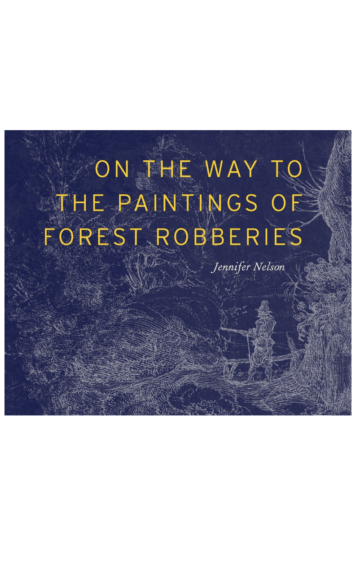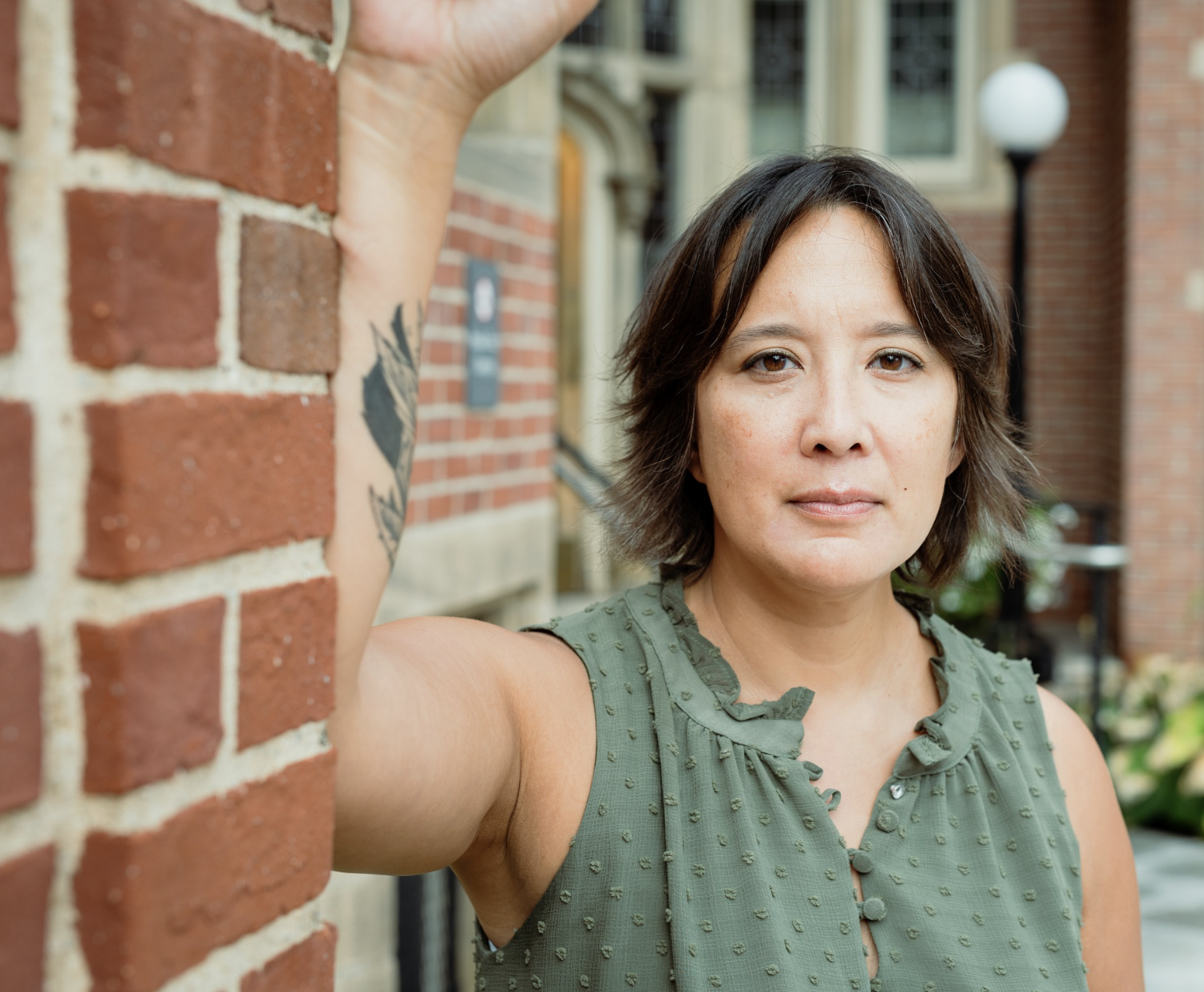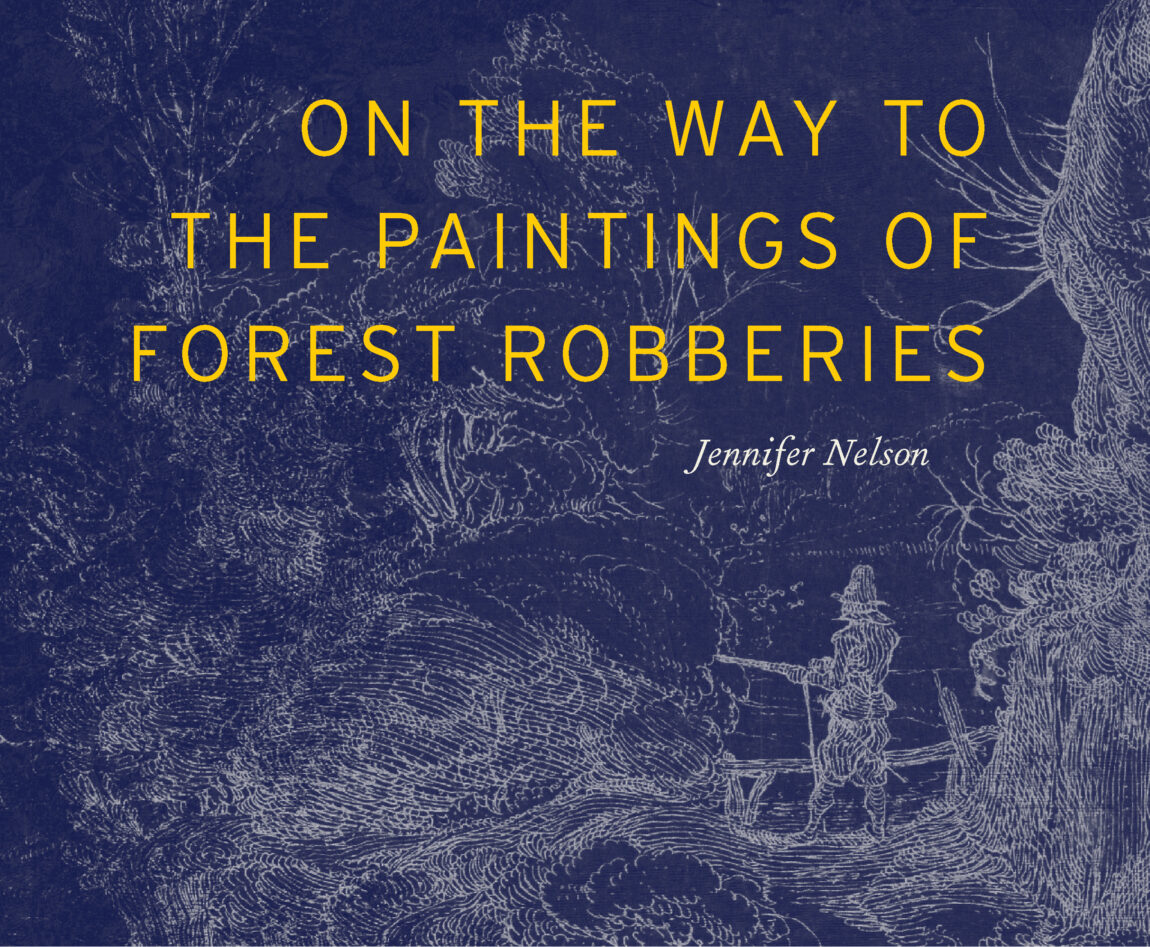
- Publisher: Fence Books
- ISBN: 9798989978519
- Published: January 28, 2025
ON THE WAY TO THE PAINTINGS OF FOREST ROBBERIES, BY POET AND HISTORIAN OF EARLY MODERN ART JENNIFER NELSON, MAKES EXQUISITE TROUBLE.
These poems give voice to Nelson’s encounters with turbulent surfaces, from the twisted spectacles of the contemporary world--geopolitical, epistemological, and local--to esteemed artworks inseparable from the legacies of colonialism.
Faced with the asymmetrical warfare, incessant pandemics, and climate calamities of the 2020s, these poems offer no simple solace. With wit, they plumb the wrecked relations between academic knowledge practice and any sort of liberatory praxis. They reject the manic digital buffet proffered as antidote to the poet’s anger, guilt, and grief by late techno-capitalism’s cultural productions.
Gazing into and grappling with the act of seeing, these poems blaze a path through forests of data and life, the ensnarled techno-webs of information and plunder. Here, the poet allows us to see beyond what and whom first meets the self’s eye. Here one may press into the “loam of the forest floor, / the ongoing of the unremembered / and those remembered wrong.”
Though it may be the case that “the world is dying,” this book’s hope is that we may, at least, persist in a form of radically productive negativity: “Let being and making / be the fullest / forms of grief.” Jennifer Nelson’s deep knowledge, care-for-the-world, and capacious attention infuse this collection and the reader with wavelengths of bracing and inclusive light.
SONNET
I will walk again in the primordial
forest: on repeat, to keep it primordial,
because in the beginning
forest is chorus. How much more singing
till I meet my good spouse Death?
When, when I say Death,
will I finally speak of my full self,
a unison of bots?
This is the rule of ghosts. They endure
as much as they’re remembered
though they carry loss like a song.
This is the loam of the forest floor:
the ongoing of those unremembered
and those remembered wrong.
“These ekphrastic poems are unlike any others, interrogating the poet’s own responsibility for drawing our attention to the pictures and poking fun at the academy in general. You could say looking at art and thinking about it is the way she sees the entire world--politics, global history, the self--like her eyes are simply made of art. These poems are such a pleasure. I love knowing Nelson is out there grappling with the big issues in her strange, private imagination.”
—MATTHEW ROHRER
“This book unites, in complication, the discordant present with the discordant past. Nelson’s “unison of bots,” an ever roaming, ever revolving consciousness, is put to the task of recording the intersections where knowledge/material is exchanged and beauty sometimes sacrificed. These poems speak from deep inside the distributed information, they want the last word.”
—ISH KLEIN
"With the eye of an art historian and the ear of a poet, On the Way to the Paintings of Forest Robberies moves seamlessly between times and places, capturing the strange visual cultures that have emerged from the clash between worlds. Her language is—at once—chatty, baroque, feral, and capacious enough to contain ghosts, facsimile creatures, colonial illustrations, the life worlds of the intertidal zone, protest, columbarium, monsters, sixteenth-century paintings, and the perverse format of the tenure dossier. Filtered through Nelson’s singular poetic vision, painting is transmogrified into poetry, then back into image, remade."
—JACKIE WANG
“Nelson carefully observes “the reduction to vestige / of entire cultures” and invites us to inquire into all the things that a “forest robbery” might be. Are we talking Robin Hood, the masses of coerced paperwork to establish academic belonging, or the theft of human-and-beyond lifeworlds? Where do such robberies happen but in the forest--the burning Amazon, the concrete “jungle”--where we’ve exiled our unwanted others, our consequences? Yet the promise of community is suggested by the greenwood. We must “not misunderstand the sun [must] not /misunderstand the flowers.” We can build from “the word barcada / friend-group and boat / or friend-ship” and find a river to launch on, together.”
—JAY BESEMER

Jennifer Nelson is the author of four books of poetry and two books of art history. An associate professor of early modern art history at the University of Delaware, they live in Philadelphia.

